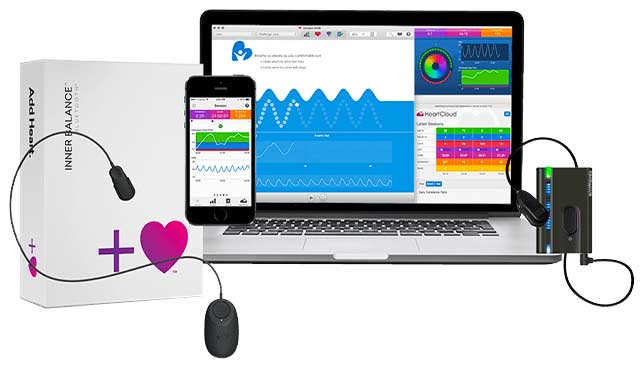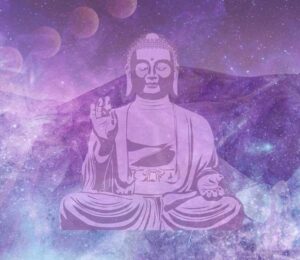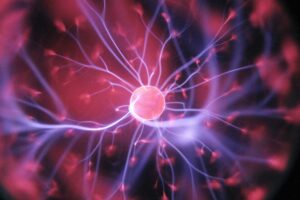Getting Beyond Attention Deficit Hyperactivity Disorder to Living an Optimized Life!
Common scenarios for seeking care:
- You might have tried medications for ADHD (usually stimulants) for yourself or for a loved one and noticed that it’s not going away. You’re now searching for ways to naturally balance this mental disorder.
- You might be experiencing a specific situation or life event that is causing you to feel symptoms associated with ADHD.Some symptoms may include restlessness, impulsive behavior, difficulty paying attention or focusing on a task, and having low tolerance to frustration.
- You or a loved one might have had these symptoms for some time, and while they resolve for a while, it’s cyclical and hasn’t been sustainable. Wellness care research has shown improvements in some associated symptoms of ADHD, and you’re willing to give it a try.
You may have heard from a family member, a friend, or a colleague about our unique approach to helping people with reducing their ADHD
Our Holistic Approach Looks Deeper Than Your Symptom Might Appear!
- Looking at potential causes of ADHD from a neurological perspective, it has been found through research that it’s due to a highly unregulated nervous system.
- The stress patterns that originate in the spinal cord’s attachment sites to the vertebral column can create global stress on the entire physiology. This can lead to stress responses that mimic symptoms of ADHD.
- Symptoms can usually be traced back to an area of subluxation, or misalignment. These constricted regions in the body-mind can occur between adjacent vertebra, cranial bones, ribs, or joints in the upper or lower extremities. When we’re constricted, we’re not the best versions of ourselves; we’re both easily distracted and easily pushed over the edge.
- It is very rare that a physical symptom doesn’t have an emotional/mental element that goes along with it. By helping connect the symptom to its associated feeling, more sustainable ease ensues.
Neuroscience research has found that by calming the nervous system’s response to its defensive posturing and stress, ease and relaxation occur naturally. ADHD then subsides considerably, allowing the body’s natural mechanisms for self-healing to optimize.
How We Pave the Way Towards Ease and Relaxation to Regulate ADHD:
- Check your posture and neurological tension and stress patterns. We’ll free up the midline stress through gentle and advanced tonal chiropractic. This will relax the body-mind considerably and allow us to dive in deeper.
- Evaluate and balance key joints throughout the skeletal system through Zero Balancing. This will integrate the relaxation response further and free up areas that are tight, bunched up and restricting natural energy currents.
- Rule out stress in the organ system that can cause depletion of key nutrients and minerals for optimal brain functions. With proper “brain food”, the body can make the proper neurotransmitters it needs to function properly.

Let’s dive into some of the physical aspects that can cause symptoms associated with ADHD.
Physical Keystone Areas We Check – where you might be subluxated or constricted:
The Vagus Nerve – The “10th cranial nerve” exits the brain under the skull on both sides, close to the ears. It is the longest cranial nerve in the body and responsible for controlling most unconscious bodily functions, such as breathing, heart rate, digestion, and immune responses.
Through gentle touch and expertise, this important landmark can be regulated and brought back to its proper tone. Think of this nerve as the gas and brake in your car. It can accelerate the system through the sympathetic, fight or flight response. It can also slow the system down through the parasympathetic, or housekeeping mode. The Vagus Nerve is part of the Social Branch of the Nervous System, the most evolved branch, which oversees the lower branches discussed above.
The Occiput (lower skull bone) – This important landmark is one of the main anchoring sites for the entire spinal cord, just as a guitar string is anchored to the neck of the guitar. The tensions that are held at the occiput, commonly by being overly flexed (very common in our smartphone culture) or by being rotated, can create direct tension on the brain stem, which helps to regulate the body’s automatic mechanisms.
The 1st Vertebra “The Atlas” – This bone is one of the most important to clear out due to its proximity to the brainstem. When it is constricted, it can cause many symptoms, such as fogginess, anxiety, loss of trust, headaches, migraines, and neck pain.
Other symptoms can include loss of balance, dizziness, ringing in the ears decreased breathing, and uncoordinated heartbeats. Being overly concerned about the future can lead to a posturing at the Atlas, generally a pattern below our awareness, like the posture we hold when “we’re waiting for the shoe to drop”.
The 2nd, 3rd and 4th Vertebrae – In response to hyperactivity, stress and anxiety, it’s very common for a person to feel very heady, cerebral and out- of- touch with their body when these segments are constricted. Over time, this can create a stress response in the nervous system because of a lack of self-regulation. Think of it as an overabundance of energy swirling in your head, popping a fuse in your fuse box (the vertebrae) below it.
The 5th, 6th and 7th vertebrae – These lower neck bones are areas that tend to show up when we’re overly stressed, frustrated or angry. There’s a certain posturing that accompanies this distortion pattern and is sometimes associated with tension in the tailbone. An exaggerated example is someone posturing as they are preparing for a fight.
This defensive posturing naturally causes stress and anxiety because of the system’s preparation for conflict or protection. While this is a normal evolutionary response, it’s not a sustainable way to run our lives properly.
The Rib Case –The rib case attaches directly to the spinal column in the back and to the breastplate and collar bone in the front of the body. There are a lot of joints that comprise this intricate network. The movement of all the joints that include these connections are vital for uninhibited respiration.
If you’re not breathing properly at rest – which we do about 22,000 times a day – you’re not receiving enough oxygen to the brain’s structures. This in turn will trigger the fight or flight response, which in turn can cause anxiety and feelings and sensations of restlessness.
The Coccyx or Tailbone – Falling on the tailbone happens to most people at least once. As one of the main anchoring sites for the entire spinal cord, along with the upper neck and skull, it presents in a “tucked” position when out of alignment. This distortion pattern is intense on the entire spinal cord.
The posturing of a tucked tailbone is one we’re familiar with as witnessed in our furry friends. When under stress or anxiety, our pets tuck their tails. We do the same thing. Imagine feeling the tightness in the rope in the middle of a tug of war contest. That is the metaphor of the tension that occurs on the spinal cord due to a flexed tailbone.
Nutritional Deficiencies and Organ Dysfunction – It’s important to check in to the health and vitality of the organ system throughout the body, including various brain structures. Through muscle testing, we’ll rule out hidden sources of stress that can be triggering ADHD like symptoms. A depletion of minerals that are used to create neurotransmitters for certain brain functions is also important to check. You can find out more about muscle testing here.
Let’s consider the emotional-mental aspects of high levels of stress and anxiety. A lot of ADHD diagnoses have underlying stress patterns associated with their cause. Have you ever found that it’s not necessarily the circumstance that is causing the stress but rather how it’s being handled? Stress builds up in the body-mind and not having a proper outlet of release can create a lack of adaptation.
The key to your success
By helping you shift your focus from only achieving your desired outcome (make the symptom go away!), to learning new skills and behaviors to grow and adapt to stress, you will find your goals will be met and even exceeded. As a culture, we are so focused on our symptom that it distracts us from what else might be lurking underneath it.
We are committed to guiding you along a path to find freedom and ease!








